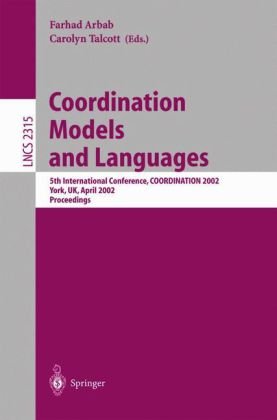

Most ebook files are in PDF format, so you can easily read them using various software such as Foxit Reader or directly on the Google Chrome browser.
Some ebook files are released by publishers in other formats such as .awz, .mobi, .epub, .fb2, etc. You may need to install specific software to read these formats on mobile/PC, such as Calibre.
Please read the tutorial at this link: https://ebookbell.com/faq
We offer FREE conversion to the popular formats you request; however, this may take some time. Therefore, right after payment, please email us, and we will try to provide the service as quickly as possible.
For some exceptional file formats or broken links (if any), please refrain from opening any disputes. Instead, email us first, and we will try to assist within a maximum of 6 hours.
EbookBell Team

4.0
96 reviewsThis volume contains the proceedings of the Fifth International Conference on Coordination Models and Languages (Coordination 2002), held in York, UK, 8–11 April 2002. Coordination models and languages close the conceptual gap - tween the cooperation model used by the constituent parts of an application and the lower-level communication model used in its implementation. Coordinati- based methods provide a clean separation between individual software com- nents and their interactions within their overall software organization. This se- ration, together with the higher-level abstractions o?ered by coordination models and languages, improve software productivity, enhance maintainability, advocate modularity, promote reusability, and lead to software organizations and arc- tectures that are more tractable and more amenable to veri?cation and global analysis. Coordination is relevant in design, development, debugging, maintenance, and reuse of all complex concurrent and distributed systems. Speci?cally, - ordination becomes paramount in the context of open systems, systems with mobile entities, and dynamically re-con?gurable evolving systems. Moreover, - ordination models and languages focus on such key issues in Component Based Software Engineering as speci?cation, interaction, and dynamic composition of components.